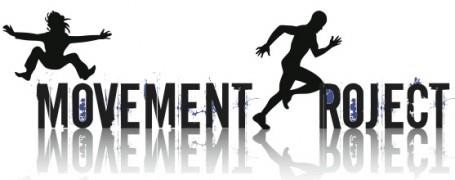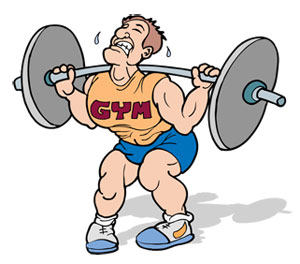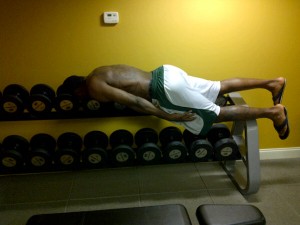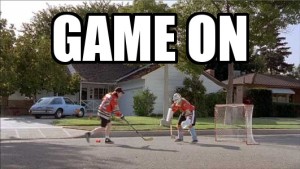Nothing is more sport specific than the sport itself
Perhaps the biggest mistake made by amateur and tactical athletes as well as young, well-meaning coaches is to obsess over recreating the physical demands of the sport or job by overloading identical movements in the weight room. While a need for specificity certainly exists, there are both appropriate and inappropriate ways and times to incorporate this necessary element of training. Specificity can prove crucial to carrying over the weight room to the field of play, but often overlooked is the importance of offsetting or undoing the damage done by these movements to increase longevity and stave off injuries commonly caused by their repetitive nature. Discussed below are two times to consider dialing down specificity in supplemental physical training.
1. Technical Breakdown
A) Due to Excessive Overload
One time when breakdown occurs is when an excessive load can not be moved with technical proficiency. Under these circumstances, compensatory movement replaces the neuromuscular efficiency necessary to achieve the desired training effect. Baseball pitchers with smart coaches only implement weighted baseballs once they have command of their technique, and even then the weighted ball is never heavy enough to alter their pitching mechanics. Coaches can more aggressively overload similar movements instead of identical ones. A baseball example would be medicine ball throws that incorporate rotational patterns and hip drive but are different enough not interfere with the skill of pitching itself.
This breakdown due to excessive overload also occurs when ego outweighs ability in arenas such as novices in Olympic weightlifting and power lifting. Lifting an inappropriate amount of weight haphazardly might impress your Facebook friends but it’s detrimental to true strength and power gains, not to mention puts you at unnecessary risk of injury.
B) Due to Fatigue
Another occurrence of technical breakdown typically occurs as a result of fatigue. Sports such as Crossfit have popularized the perils of what can happen when task completion becomes more important than execution. I fully understand the importance of mental fortitude in tactical and athletic environments but there are smarter ways to train it without degrading the quality of central nervous system intensive exercises. Be careful not to confuse training with competing or testing. The means is not an end in itself.
2. While in Season
The “season” can be defined as just that for traditional athletes or a deployment / busy season for the tactical variety. When the skills enhanced by weight room activities in the off-season or training cycle become utilized by the sport or profession, it’s time to scale back those skills in the weight room. Decrease the load volume (number of reps x weight per rep) and maintain intensity (load, speed of movement) to keep your strength and power output high without emptying the tank. You would not want to knock out a training session with 10 sets of 10 weighted lunges the day prior to a 12k infil over mountainous terrain. Instead, load 3 sets of 4 heavy squats and call it a day. You’ll keep your strength as well as spare your stamina for the impending physical demands. Similarly, a pitcher would not want to throw a high volume of explosive medicine ball work in anticipation of pitching six innings. Stopping after a couple of short sets just to maintain power would be more appropriate.
In Closing
Famous Soviet hammer thrower and coach Dr. Anatoliy Bondarchuk discusses the undeniable value of specificity in exercise selection in his book Transfer of Training in Sports. While the contribution of specificity proves indisputable, its application must be infused intelligently with a prioritized respect for the bigger picture. Do not grossly overload movements identical to the skill an exercise aims to enhance. Heed caution when risking technical proficiency for the sake of task completion while fatigued. Finally, reduce the implementation of specificity off the field when there are competing demands on the field. Now that you know what you shouldn’t do in the realm of specificity, I will soon discuss what you should do in the upcoming blog Offset Wisely with Off Field and Off Season Training.



